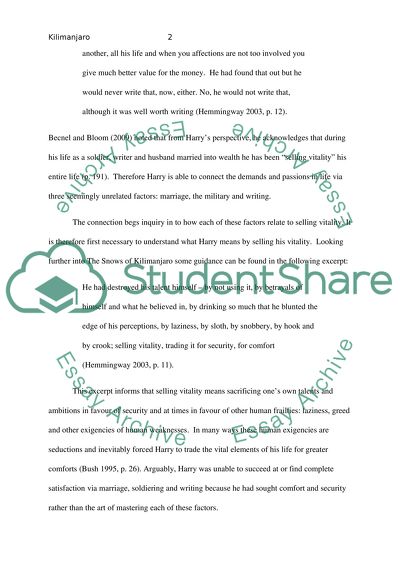Cite this document
(“The Snows of Kilimanjaro by Ernest Hemingway Research Paper”, n.d.)
Retrieved from https://studentshare.org/family-consumer-science/1424858-the-snows-of-kilimanjaro-by-ernest-hemingway
Retrieved from https://studentshare.org/family-consumer-science/1424858-the-snows-of-kilimanjaro-by-ernest-hemingway
(The Snows of Kilimanjaro by Ernest Hemingway Research Paper)
https://studentshare.org/family-consumer-science/1424858-the-snows-of-kilimanjaro-by-ernest-hemingway.
https://studentshare.org/family-consumer-science/1424858-the-snows-of-kilimanjaro-by-ernest-hemingway.
“The Snows of Kilimanjaro by Ernest Hemingway Research Paper”, n.d. https://studentshare.org/family-consumer-science/1424858-the-snows-of-kilimanjaro-by-ernest-hemingway.


